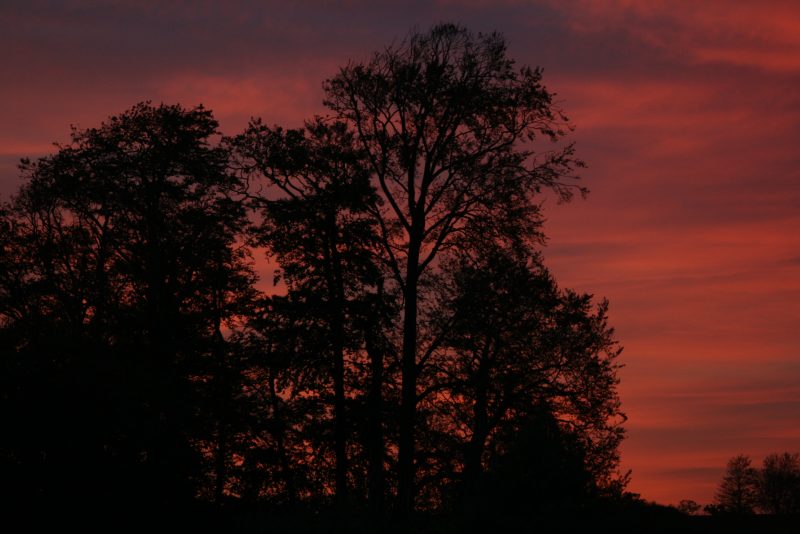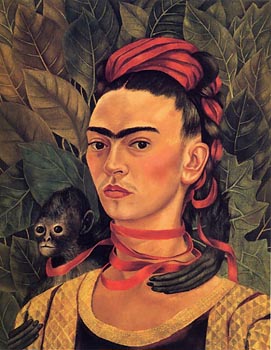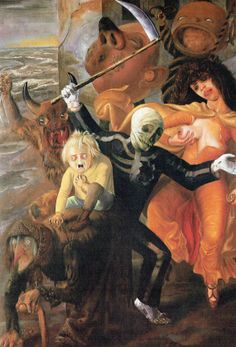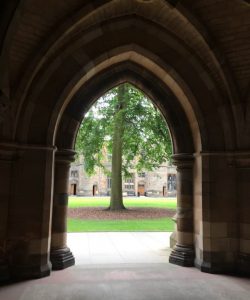
What it is, what it’s not, its origins, characteristics and exponents

Frida Kahlo
Magic Realism is a mode of literature most often associated with Latin American authors, in particular, Isabel Allende and Gabriel García Márquez, and is taken to mean the incorporation of mythical and/or fantastical elements in an otherwise realistic narrative. But this definition doesn’t tell the whole story. The genre is neither exclusively Latin American nor is it escapist fantasy.
Etymology & Origins
Reality is ultimately kind of dulling. Defamiliarisation brings the world back into focus again.
Dr Helen Marshall, Anglia Ruskin University[1]
The term Magischer Realismus (Magic Realism) was coined in the Weimar Republic in 1925 by German art critic Franz Roh to describe the post-expressionist return to realism, specifically in the study of – and taking renewed delight in – everyday objects to render them fantastic and extraordinary. This defamiliarization allows the audience to reconsider their response to what they think of as ordinary.

Roh’s book was translated into Spanish and soon the term was being applied to European authors among Buenos Aires literary circles. By 1949, French Surrealist, Alejo Carpentier, had defined lo real maravilloso (translated as ‘the marvellous real’) as being peculiarly of the Americas.
The genre found global appeal in the ‘60s, with the release of Gabriel García Márquez’s One Hundred Years of Solitude which has been translated into 37 languages.
Today, the movement of magic realism can be felt in postmodern and postcolonial contexts, such as Midnight’s Children by Salman Rushdie and The Famished Road by Ben Okri, and is found in texts from Europe, Australia, Asia, North America, Africa, the Caribbean, as well as Latin America.
Sourced from Parkinson Zamora, Lois & Faris, Wendy eds. (1995) Magical Realism: Theory, History, Community. London: Duke University Press
Characteristics
Magic realism literature may be characterised as incorporating at least some of the following elements:
- The carnivalesque: the subversion and liberation of assumptions (including temporal/spatial) through humour and chaos. For instance, time does not necessarily happen in linear order.
- Plenitude: an abundance of disorientating detail. Hyperbole.
- Authorial reticence: a ‘deliberate withholding of information and explanations about the disconcerting fictitious world.’[2] Any explanation would pull the reader from the fictitious world. Instead, the magic is told matter-of-factly, without astonishment.
- Hybridity: a confluence and contrast of, for example, Western vs. indigenous; urban vs. rural; folklore/magic vs. the established order; nature vs. anthropomorphism; self vs. society.
- Oral tradition: myths, fairy tales and fables are rendered in a contemporary setting.
- Metaphors as reality: can be used for cross-cultural emphasis.
- Metafiction: a technique which draws attention to the fact that a text is fiction, thereby questioning the relationship between fiction and reality.
[2] Chanady, Amaryll Beatrice (1985). Magical Realism and the Fantastic: Resolved versus Unresolved Antinomy. New York: Garland Publishing Inc., p.16
Exponents
The list (alphabetically by author) below includes some of my favourite magic realism titles. It is not meant as a complete, all-inclusive list of authors/titles in this mode.
- Isabel Allende The House of the Spirits
- Louis de Bernieres The War of Don Emmanuel’s Nether Parts
- Leonora Carrington The Hearing Trumpet
- Angela Carter The Bloody Chamber
- Angela Carter The Magic Toyshop
- Neil Gaiman American Gods
- Neil Gaiman The Ocean at the End of the Lane
- Rosie Garland The Night Brother
- Gabriel García Márquez Love in the time of Cholera
- Gabriel García Márquez One Hundred Years of Solitude
- Günter Grass Tin Drum
- Marlon James Black Leopard, Red Wolf
- Kij Johnson The Fox Woman
- Carmen Maria Machado Her Body & Other Parties
- Toni Morison Beloved
- Haruki Murukami Killing Commendatore
- Haruki Murukami The Wind-up Bird Chronicle
- Silvina Ocampo Thus Were Their Faces
- Irenosen Okojie Speak Gigantular
- Irenosen Okojie Nudibranch
- Helen Oyeyemi Gingerbread
- Helen Oyeyemi Mr Fox
- Leone Ross Come, Let us Sing Anyway
- Karen Russell Swamplandia!
- George Saunders Lincoln in the Bardo
- Samanta Schweblin Fever Dream
- Namwali Serpell The Old Drift
- Patrick Süskind Perfume: the Story of a Murderer
- Denis Thériault The Peculiar Life of a Lonely Postman
- Scarlett Thomas The Seed Collectors
- Alice Thompson Justine
- Oscar Wilde The Picture of Dorian Gray








